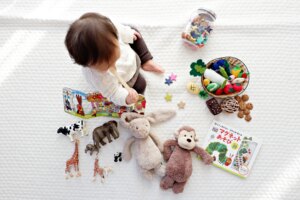Studycat
Looking for a lively way to get your kids excited about language learning? You need Studycat. The online learning platform's award-winning, engaging programs make language learning colorful and fun. Choose from five of the world's most spoken languages and start your little ones on the right track towards bilingualism today with Studycat.
To learn or not to learn
Whether you’re planning to stay in your new country for a short period of time or an indefinite one, there are obvious considerations when deciding whether or not to learn the local language yourself. However, your child won’t focus on these practical matters; simply trying to make friends will result in your child absorbing a great deal about the local tongue with much less effort than you. Young children lack certain complex social anxieties that sometimes inhibit adults. They’re less embarrassed to make pronunciation or grammatical errors. They’re also typically more willing to try to speak, regardless of any mistakes they make.

Research shows that youngsters with experience in moving abroad are more adept at making new friends. They can dive into personal relationships in a more agile way than children who haven’t experienced a transient lifestyle. They can quickly move into deeper levels of friendship where it’s alright to discuss personal opinions and to disagree with peers. However, to be able to communicate at such a level, a good level of the non-native language is necessary; this spurs on the children to pick up the local lingo rapidly.
Aside from social reasons, children are more able to pick up a language quicker than adults because they don’t have the sound and contextual associations with words that adults do; that makes it easier for them to pronounce new sounds and words.
Practical implications for expat children and language learning
Living abroad means your child will become socially involved with local children and teachers. When this happens, your child will want to bring home their new friend. It might be difficult for you to effectively look after your child their friend if you can’t understand what they’re saying. You can’t expect your child to be the constant translator in this situation; you’ll probably miss things in translation, which can be a problem if it’s something important like, “Sebastian feels sick.” A child’s knowledge of the local language needs to go beyond being able to address their teacher properly.
In addition, think about local traditions or norms. For instance, your child might learn about local holidays in school and want to celebrate them. Often, there’s music in the local language or other associated customs that you might be unaware of; they’ll probably have learned these things with local peers at. You might feel a cultural distance between you and your child at this point; for example, if you and your child became quite close during the move abroad, lacking the same cultural experiences as your child could prompt feelings of insecurity or loneliness. It looks like your child is moving forward without you.
Expat children and language learning: developmental implications
No matter where you live, parents want to make their child feel happy and safe in their environment. Family dynamics are particularly important for expat families, as they rely on each other for comfort and security during transient times. For example, even those with high levels of confidence experience a lack of self-esteem during a move abroad. As you start over with your new life abroad, you need to re-learn local norms and values; this makes you re-establish a sense of self and purpose in a new environment. Expat children often re-develop their own self-esteem during transitional times through their attachment to family members. Parents need to be involved in the transition process alongside their child in these situations. If there’s a gap between you and your child’s language development, this could strain your family’s support system.
While there’s no denying that parents have a huge impact on their child’s self-esteem, a child can also influence their parents. This duality of influence between parents and children is interesting in the case of language acquisition in a non-native country. The bottom line is that if you want to make the most of your time abroad, there are many benefits to becoming familiar with the local language. By supporting expat children and language learning, you’re supporting them emotionally, socially, and giving them a helping hand to success.




